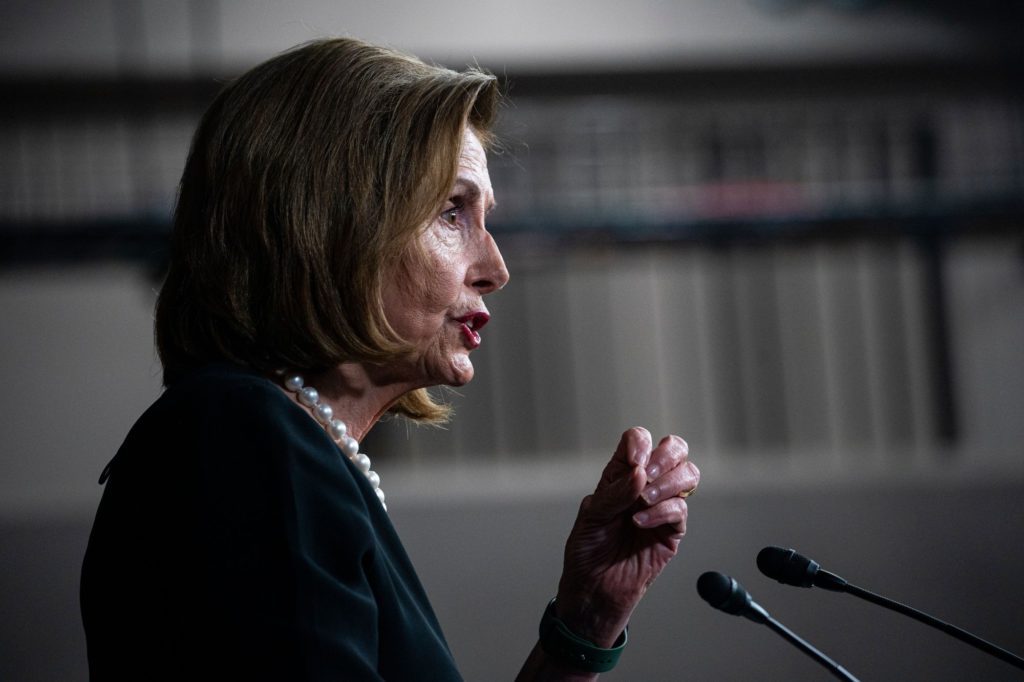(Bloomberg) — House Speaker Nancy Pelosi backed a compromise Senate bill that provides subsidies for the semiconductor industry, and said she plans for a House vote on it as soon as next week.
With her Wednesday statement of support for the Senate bill, which funnels $52 billion to chipmakers, Pelosi signals a close to a yearlong deadlock between the House and Senate on a legislative package designed to bolster US competition against China. Her backing greatly boosts chances of passage before the August congressional recess.
Pelosi and House Democrats had long pushed to add environmental provisions and compensation for workers displaced by trade agreements to the bill, but are now leaving those fights for another day.
“The Chips Act for America is a major victory for American families and the American economy. As the Senate undergoes its legislative process, we are optimistic that the House will be able to take this bill up as early as next week,” Pelosi said in a letter to her House colleagues.
The Senate on Tuesday took a procedural vote to begin debate on the semiconductor legislation, by a vote of 64 to 34. That chamber is likely to vote to end debate on Thursday, setting up passage early next week in the Senate. At that point the House would be poised to act.
Items Included
In addition to money to assist semiconductor companies in building fabrication plants or “fabs” in the US, a draft bill circulated by the Senate leadership includes:
- A 25% investment tax credit for the manufacture of semiconductors and tools to create semiconductors
- $500 million for an international secure communications program
- $200 million for worker training
- $1.5 billion for public wireless supply-chain innovation
The 1,054 page compromise bill unveiled Tuesday night in the Senate also contains scientific research provisions that reflect months of negotiation between House and Senate lawmakers. Those provisions reorganize programs at the National Science Foundation and National Space and Aeronautics Administration, boost scientific education and create regional technology hubs.
The science provisions were added after a push by Indiana Senator Todd Young and Arizona Senator Kyrsten Sinema.
There is also a provision to provide $20 million to boost Supreme Court security.
Pelosi praised the inclusion of a $1 billion House provision to provide funding for distressed communities, as well as strong guardrails that prevent chipmakers from using subsidies for stock buybacks or investments in China.
It remains to be seen how much support the bill will get from House Republicans. Frank Lucas, the top GOP member of the House Science Committee, said in a statement that the final science provisions had been negotiated in secret and did not yet have his full support.
A last-minute push by some lawmakers to include $2 billion in retroactive research and development tax breaks fell short, making a year end push for the credit likely.
In addition to House and Senate disagreements over the substance of the China competition package, Senate Minority Leader Mitch McConnell said last month that no bill would go forward so long as Democats were pursuing a $1 trillion tax measure to fund climate change spending and other measures.
West Virginia Senator Joe Manchin scuttled talks on that bigger bill — at least for now — last week. That then cleared the way for a bipartisan semiconductor bill in the Senate.
More stories like this are available on bloomberg.com
©2022 Bloomberg L.P.











